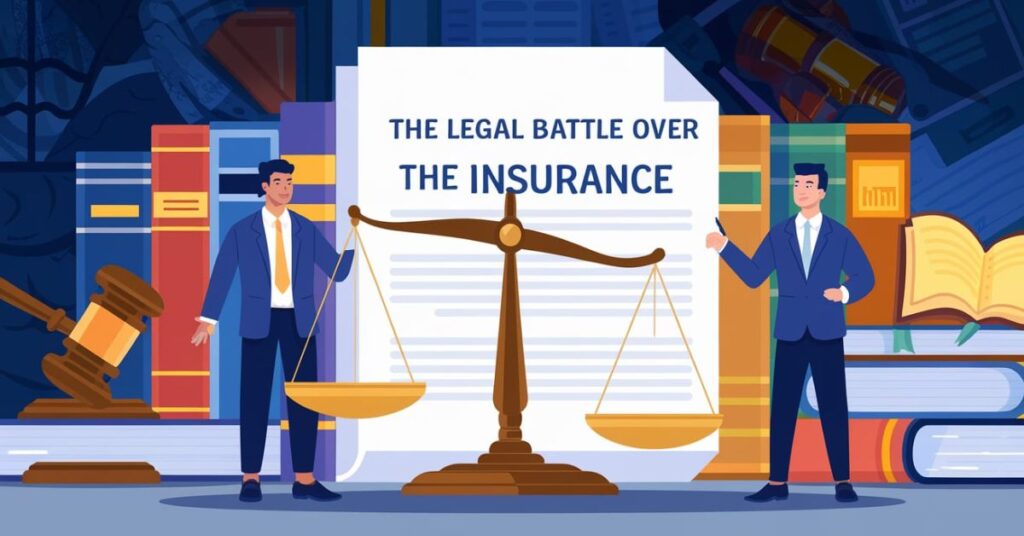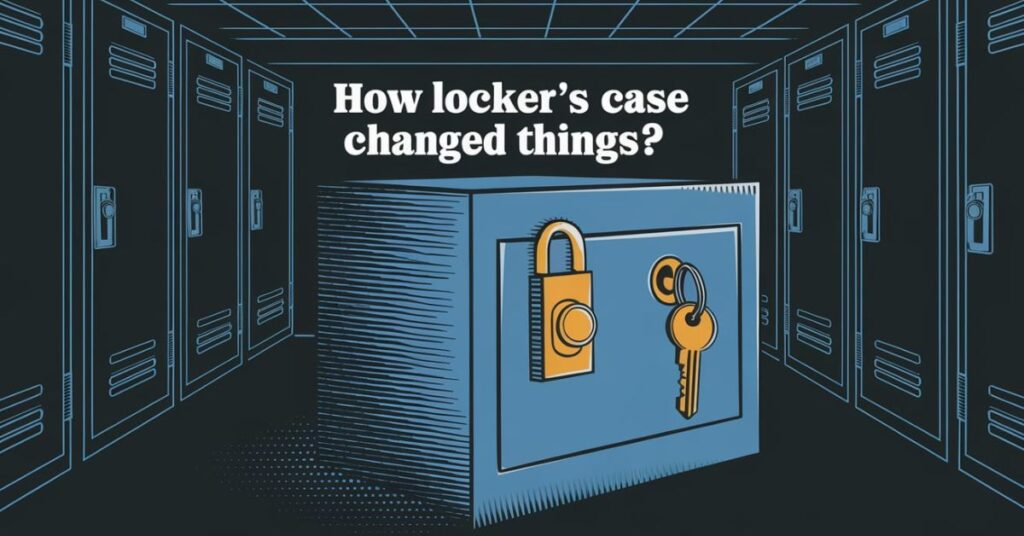Jeffrey Locker’s death raised many questions. People wondered if his family got his life insurance money. This case made many think about how life insurance works.
What if someone dies strangely? Can their family still get the insurance money? These questions came up in Jeffrey Locker’s case. It made people look closely at life insurance rules.
This story has many parts. We will look at who Jeffrey Locker was. We will see what happened when he died. We will also learn about the fight for his life insurance money.
Who Was Jeffrey Locker?
Jeffrey Locker lived in New York City. He had a wife and kids. He seemed like a normal guy to most people who knew him.
Jeffrey Locker worked as a motivational speaker. He would talk to groups about how to do well in life. Many people liked his talks and thought they were helpful.
But Locker had a secret. He owed a lot of money to people. He was in big trouble with money. Not many people knew about this part of his life.
The Night of Locker’s Death
On July 16, 2009, something bad happened. The police found Jeffrey Locker dead in his car. His car was in East Harlem, a part of New York City.
At first, people thought someone had robbed and killed Jeffrey Locker. East Harlem was known as a place where crime happened. It looked like Locker might have been in the wrong place.
But as the police looked into it more, they found odd things. These things didn’t fit with a simple robbery. The police started to think there was more to the story.
The Truth About Locker’s Death

After some time, the police learned more about what happened. They found out Jeffrey Locker had been talking to people about ways to die. He had asked how to make a death look like an accident.
Then, a man named Kenneth Minor said he killed Locker. But he said Jeffrey Locker had asked him to do it. Minor said Locker wanted to die so his family could get life insurance money.
This news shocked everyone. It changed how people saw Jeffrey Locker’s death. Now, it looked like Locker might have planned his death.
The Life Insurance Problem
Jeffrey Locker had life insurance worth a lot of money. If he died, his family was supposed to get this money. But now there was a big problem.
Life insurance companies have rules about suicide. They often don’t pay if someone kills themselves. The company had to decide if Jeffrey Locker’s death was suicide.
This put Locker’s family in a tough spot. They had lost Locker, and now they might not get the money they thought they would get.
Key Points in the Locker Case
The Locker case had many important parts. Here are the main things to know about it:
- Locker was found dead in his car in East Harlem.
- At first, people thought it was a robbery gone wrong.
- Kenneth Minor said he killed Locker, but said Locker asked him to do it.
- Locker had money problems and owed a lot of people.
- The life insurance company had to decide if it was suicide.
The Legal Battle Over the Insurance

The insurance company had to make a choice. They looked at all the facts about Jeffrey Locker’s death. Here’s what happened:
The Company’s Decision
After a thorough investigation, the insurance company made a difficult choice. They decided not to pay the life insurance money to Jeffrey Locker’s family. The company believed that Locker had planned his death, which went against their policy rules.
This decision was based on the evidence they had gathered about Jeffrey Locker’s death. They looked at police reports, witness statements, and other information. The company felt that the circumstances of Locker’s death were too suspicious to ignore.
The insurance company’s choice took work, but they felt it was necessary. They have rules in place to prevent fraud and protect their business. In this case, they believed those rules applied to Locker’s situation.
The Family’s Response
When Locker’s family heard the insurance company’s decision, they were shocked and upset. They had just lost a loved one, and now they were being denied the financial support they had counted on. The family strongly disagreed with the company’s view of what happened.
They believed that Jeffrey Locker’s death was not as clear-cut as the company claimed. The family felt that there were still many unanswered questions about the night Jeffrey Locker died. They thought it was unfair to assume he had planned his death.
For Locker’s family, this wasn’t just about money. It was about honoring Locker’s memory and getting what they saw as justice. They felt that the insurance company was wrong and needed to be challenged.
Going to Court
After much thought, Locker’s family decided to take legal action against the insurance company. They hired lawyers and prepared to argue their case in court. The family hoped that a judge would see things differently and order the company to pay.
This decision to go to court was not an easy one. Legal battles can be long, stressful, and expensive. But the family felt they had no choice if they wanted to get the insurance money they believed they deserved.
The court case would look at all the evidence again. Both sides would present their arguments to a judge. This legal fight would take a long time and have a big impact on both the family and the insurance company.
Read this Blog: Can Insurance Fix Something Unrelated To the Damage?
Understanding Life Insurance Rules
Life insurance is meant to help families when someone dies. It gives them money to pay for things they need. But there are rules about when the insurance company will pay.
One big rule is about suicide. Most insurance policies won’t pay if someone kills themselves. But this rule usually only lasts for two years after someone gets the insurance.
After two years, the company might pay even if it was suicide. This is called the contestability period. It’s a very important part of life insurance rules.
How Locker’s Case Changed Things?

The Jeffrey Locker case made people think about life insurance in new ways. It showed that these cases can be very complicated.
Insurance companies started looking more closely at deaths. They wanted to make sure people weren’t tricking them. This made it harder for some families to get money.
Some people thought the rules should change. They said it wasn’t fair to families if someone died strangely. The case started many debates about life insurance.
Life Insurance After Locker
A table showing how life insurance changed after the Locker case:
| Before Locker Case | After Locker Case |
| Less strict checks | More detailed investigations |
| Quicker payouts | Longer wait times for money |
| Fewer court cases | More legal battles |
| Less public attention | More media coverage of cases |
| Simpler policies | More complex insurance rules |
The Impact on Families
The Jeffrey Locker case affected many families. Some found it harder to get life insurance money. Insurance companies asked more questions when someone died.
This made a hard time even harder for some families. They had lost someone they loved. Now they had to prove how the person died to get the insurance money.
But it also made some families more careful. They made sure they understood their insurance policies better. They wanted to avoid problems if something happened.
Lessons from the Locker Case
The Jeffrey Locker case taught us many things. It showed how complex life insurance can be. It also showed why it’s important to understand insurance policies.
One big lesson was about being honest. Jeffrey Locker hadn’t been honest about his money problems. This made things very hard for his family later on.
Another lesson was about following the rules. Even if someone is in trouble, trying to trick the insurance company isn’t the answer. It can hurt the family more in the end.
Changes in the Insurance World

The insurance world changed after the Locker case. Here’s what happened:
New Rules
After the Jeffrey Locker case, insurance companies took action to protect themselves. They created stricter guidelines for policy payouts, especially in suspicious death cases. These new rules aimed to prevent fraud and ensure only valid claims were honored.
The changes made it more challenging for some beneficiaries to receive insurance money. Companies now require more documentation and proof before approving claims.
This shift was designed to safeguard the insurance system’s integrity. While these rules helped companies, they also created hurdles for honest claimants.
Families now had to navigate a more complex process during an already difficult time. The balance between preventing fraud and serving customers became a key industry challenge.
More Investigations
Insurance companies began conducting more thorough investigations into policyholder deaths. They hired specialized teams to examine the circumstances surrounding each claim.
This increased scrutiny was meant to uncover any potential fraud or policy violations. These in-depth investigations often involved interviews, document reviews, and collaboration with law enforcement.
Companies invested more time and resources into each case, wanting to be certain before making a payout decision. This approach aimed to protect the company’s interests and maintain fair practices.
The increased investigations had consequences. Claim processing times became longer, and costs rose for insurance companies. Families had to wait longer for decisions, which could cause financial stress during a time of loss.
Better Education
Recognizing the need for clarity, insurance companies launched initiatives to educate their customers. They developed programs to explain policy terms, conditions, and exclusions in simpler language.
This effort aimed to help policyholders fully understand their coverage and responsibilities. Companies created brochures, online resources, and customer service training to improve communication.
They wanted to ensure that customers knew exactly what their policies covered and what might prevent a payout. This transparency was intended to reduce misunderstandings and conflicts later on.
By investing in education, insurance companies hoped to prevent situations like the Jeffrey Lockercase. They believed that well-informed customers would be less likely to attempt fraud or misunderstand their coverage. This approach aimed to build trust and improve the overall customer experience in the long run.
What We Learned?

The Jeffrey Locker case taught us many things.
There are the main lessons:
- Life insurance rules can be very complicated.
- It’s important to be honest when getting insurance.
- Insurance companies look very closely at strange deaths.
- Families might have to fight to get insurance money.
- Understanding your insurance policy is very important.
The Future of Life Insurance
The Locker case changed how we think about life insurance. Now, companies are more careful. They look closely at each death before they pay.
This means it might take longer to get money after someone dies. But it also means the system is fairer. Companies try hard to make sure they’re following the rules.
In the future, we might see more changes. Insurance companies might use new technology to check deaths. They might also change their rules to stop people from tricking them.
Conclusion
The Jeffrey Locker case was very complex. It showed how tricky life insurance can be. It made people think hard about the rules of insurance.
Locker’s family went through a lot. They lost someone they loved. Then they had to fight for the insurance money. Their story shows why it’s so important to understand insurance policies.
In the end, this case changed things for many people. It made insurance companies more careful. It also made families more aware of how insurance works. The lessons from this case will be important for a long time.
Frequently Asked Questions
Did Jeffrey Locker’s family get the life insurance money?
The court case was complex and took time. The outcome depended on many factors.
Can life insurance companies refuse to pay?
Yes, if they find evidence of fraud or if the death violates policy terms.
How long do life insurance investigations usually take?
It can vary, but complex cases may take months or even years to resolve.
Does suicide always mean no insurance payout?
Many policies have a suicide clause that expires after two years.
How can I make sure my family gets my life insurance?
Be honest when applying and make sure your family knows about your policy.

David: Seasoned financial expert with 5 years in banking and investments.
Skilled in personal finance, market analysis, and wealth management. Empowers clients to achieve financial goals.





